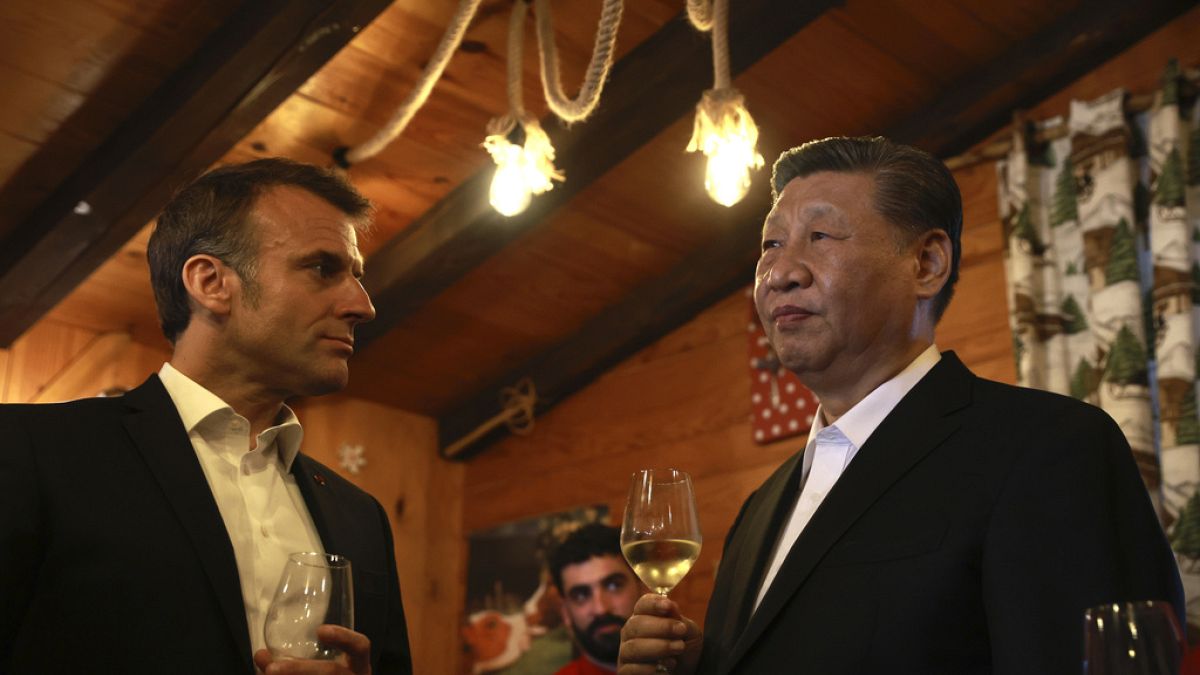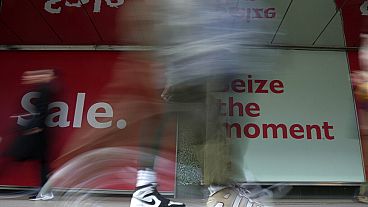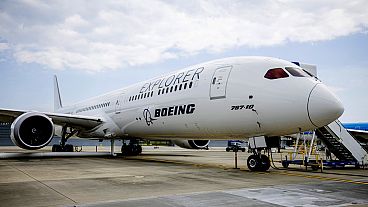No major deals have emerged from Chinese President Xi Jinping's European visit despite efforts to find common ground on a number of topics.
Ahead of the Chinese President's visit to Serbia and Hungary on the latest leg of his European visit, Xi Jinping was taken by France's President Emmanuel Macron to the Pyrenees mountains.
Macron entertained Xi on Tuesday with lunch near the birthplace of his maternal grandmother at what was a more personal engagement following Monday's formal discussions in Paris.
Those negotiations, also attended by European Commission President Ursula von der Leyen, focused heavily on trade disputes, in particular the matter of Chinese goods being imported into Europe.
The trade conundrum
The European Commission last year launched an investigation into the abundance of Chinese green technology in the EU which critics argue is harming European competitors.
Chinese manufacturers are able to keep their costs artificially low because they are supported by state subsidies.
Following Monday's talks, von der Leyen said that the European Union "cannot absorb massive over-production of Chinese industrial goods flooding its market. Europe will not waver from making tough decisions needed to protect its market."
Supporting French industry
President Macron has been supportive of the Commission's stance against so-called unfair trade, but he remains wary of retaliatory measures.
France has a number of industries reliant on Chinese buyers, notably the brandy business and cosmetics manufacturers.
Following Monday's discussions, Emmanuel Macron thanked Chinese President Xi Jinping for what he called "his open attitude" regarding an anti-dumping probe into French brandy.
China opened an investigation into cognac imported from the EU in January. It now seems that China will not impose taxes or custom duties on the beverage until the inquiry is over.
Agreements on business contracts
Xi Jinping has also referred to the initial meetings with European leaders as "fruitful".
French and Chinese companies have signed a number of agreements, although there have been no major deals.
Contracts include an offer for French company Alstom to build new metro lines in Beijing and Wuhan - and the firm will also contribute to metro infrastructure in the Chinese city of Hefei.
Even though Macron has talked about the need to protect Europe's interests, France remains keen to host Chinese EV factories.
"France welcomes all industrial projects. BYD and the Chinese auto industry are very welcome in France," Finance Minister Bruno Le Maire said at a meeting with car sector executives on Monday.
Pro-Russian neighbours
Xi's European itinerary now continues with visits to Serbia and Hungary, two nations that receive a substantial amount of Chinese investment.
By choosing to visit countries sympathetic to Moscow, Xi is showing his ability to court players on both sides of the fence.
China has refused to condemn Russia's invasion of Ukraine, although it has refrained from offering overt military support.
There are, however, concerns that Chinese companies are still selling "dual-use" items to Russia that can be used to make military hardware.
Serbia and Hungary play a significant role in China's Belt and Road initiative, aimed at expanding its global influence.
On this next leg of his trip, Xi will discuss progress on a high-speed rail link between Budapest and Belgrade.
This will allow the Chinese-owned port of Piraeus in Greece to become an entry point for Chinese goods travelling to Central and Eastern Europe.



